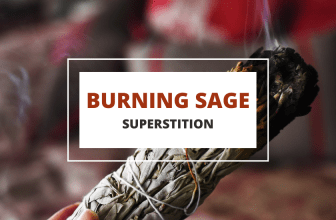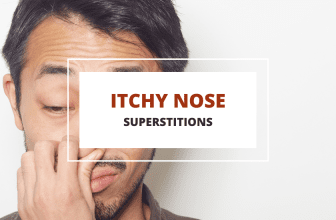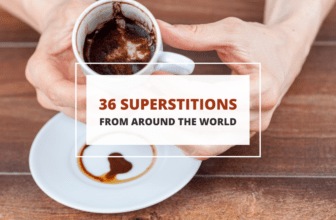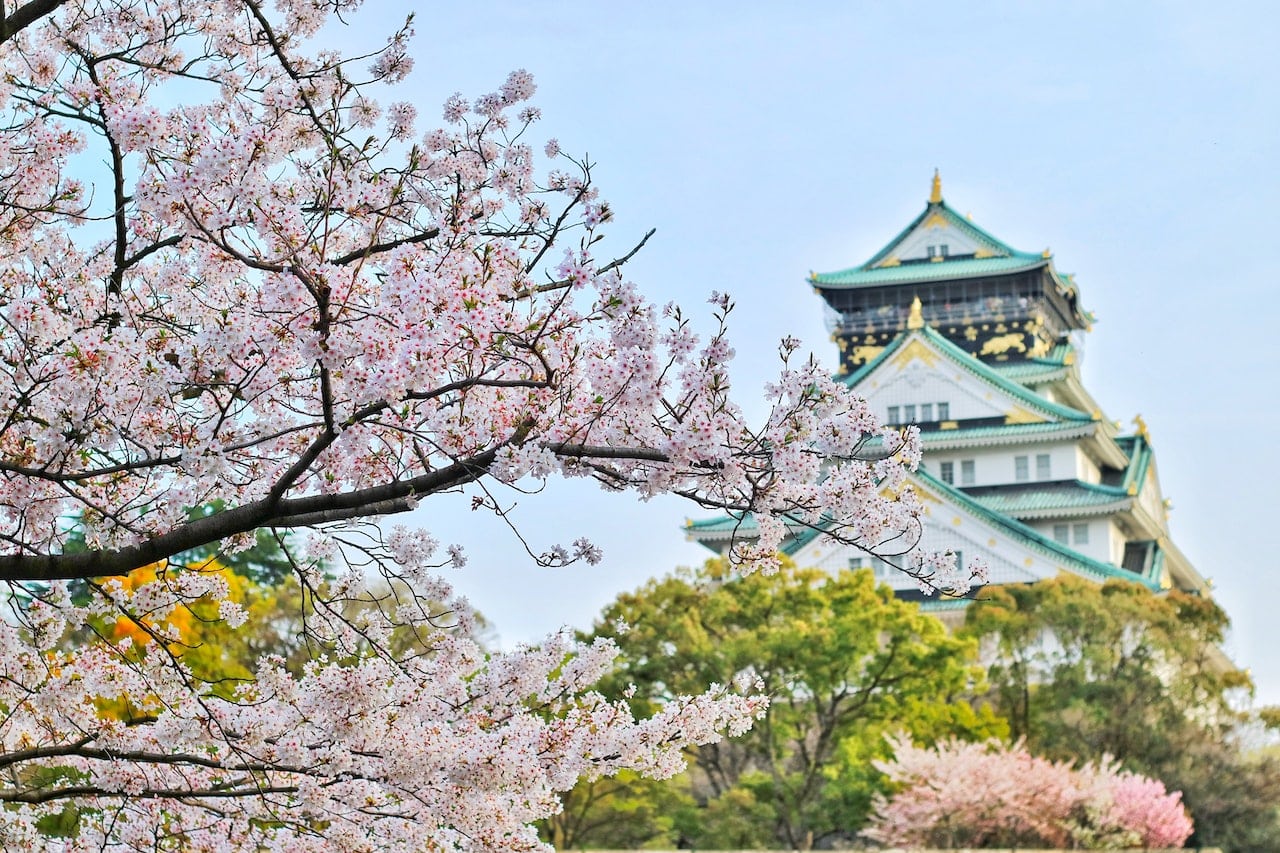
Table of Contents
Japan has an ancient culture and history, and needless to say, this has resulted in unique legends, myths, and superstitions that have emerged over time.
Japanese superstitions tend to be either rational or quite bizarre. However, all of them appear to have an exciting story while showing a completely different aspect of the distinctive culture.
In this article let’s take a look at a list of the most interesting Japanese superstitions.
So, gear up and get started to be intrigued!
Uttering “Shio” is Forbidden at Night
Shio in Japanese is known as salt. And this sounds quite similar to shi, which means death in Japanese. Even today, some people in Japan believe that uttering this word at night might make something terrible happen.
Inanimate Objects Possess Spirits
Japanese Buddhists still believe that particular inanimate objects, such as dolls, contain spirits. There are quite a few Japanese stories about how some inanimate objects came to life, which is why Japan holds an annual ceremony known as Ningyo Kuyo. Here, if a doll owner wants to get rid of an old doll, they say a prayer before discarding them.
7 Is Lucky and 4 and 9 Are Unlucky Numbers
Not only in Japan, but people across various countries believe in lucky and unlucky numbers. Japanese people consider the numbers 4 and 9 to be unlucky as they rhyme with death and pain, respectively, which is why some buildings in Japan don’t have fourth and ninth floors!
On the other hand, Japanese people consider seven to be a lucky number. Japanese Buddhists celebrate the seventh day of a baby’s life. Besides, they believe in the Seven Gods of Luck, who are popularly known as Shichifukujin. The Japanese people celebrate Tanabata every summer on the 7th of July.
Breaking a Comb Brings Bad Luck
Have you ever heard that breaking a mirror is a sign of absolute bad luck? Well, in Japan, it is similar to that of breaking a comb! Whenever you are visiting Japan, you should be extra careful while handling your comb.
Cutting Fingernails at Night is Best Avoided
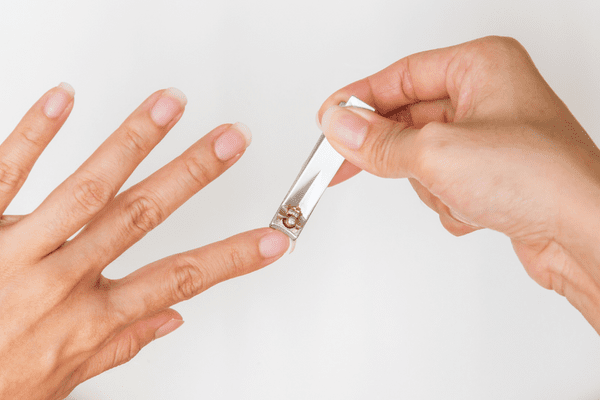
Some Japanese people believe that cutting fingernails at night might lead to an early death. This belief is typically based on wordplay. The Japanese kanji which refers to cutting your nails at night can also be interpreted as “quick death”.
Droppings of Birds and Other Animals are Considered Lucky
This is one quirky Japanese superstition. Basically, if this unpleasant incident ever happens to you, you should probably consider yourself lucky. Un, meaning ‘luck’ in Japanese, has the same pronunciation as that of excrement. This similarity in the pronunciation of words means that both are considered to have the same meaning – in this case, luck.
Your Shoes Can Make Weather Predictions!
Who requires fancy meteorology equipment when your shoes can make accurate weather predictions? All you need to do is throw your shoes up high into the air, and wait until it lands.
If your shoe lands on the sole, then it calls for pleasant weather. And if it lands on its side, the day will probably be cloudy. Finally, if your shoe lands upside down, it will undoubtedly rain!
Plums Bring Good Luck
Certain superstitious beliefs in Japan suggest pickled plums are capable of bringing good luck. In fact, it can also prevent any accidents from occurring. And some Japanese people also believe eating an umeboshi or pickled plum every morning is crucial. This might probably protect you from other dangers.
Japanese Prayer Amulets are Deemed to Bring Good Luck
Some Japanese amulets, like omamori, are popularly known to contain prayers. And as per Japanese superstitions, having an omamori is ideal for promoting good health and safe driving.
Omamori can also provide aid for performing better in education. It can even help you in other situations where you require inevitable divine intervention.
Saying Moduru or Kaeru is Forbidden at Weddings
According to Japanese wedding superstitions, saying moduru or kaeru can bring you bad luck, especially at Japanese weddings. Doing this will probably jinx the ongoing marriage and manipulate the bride to leave her husband. At worst, she might even return home, back to her parents. So, you should be very careful and consider choosing your words very wisely.
Animals Are Believed to Have Supernatural Powers
The fox is popularly known as kitsune in Japanese. And according to Japanese folklore, foxes are believed to possess incredible supernatural abilities.
However, there are good kitsune capable of bringing good luck and warding off evil spirits, but also bad kitsune, such as the yako and nogitsune who are evil kitsune and are widely known for playing tricks and plans on humans.
Stepping on a Tatami Mat is Prohibited
Tatami mats are very commonly found in almost every Japanese home. There are certain tatami mats that contain family emblems and are created in such a way as to have good fortune. The number and layout of the mat can bring good fortune. So, stepping on the border of a tatami mat is considered bad luck by Japanese people.
Japanese Have Fortune Cats
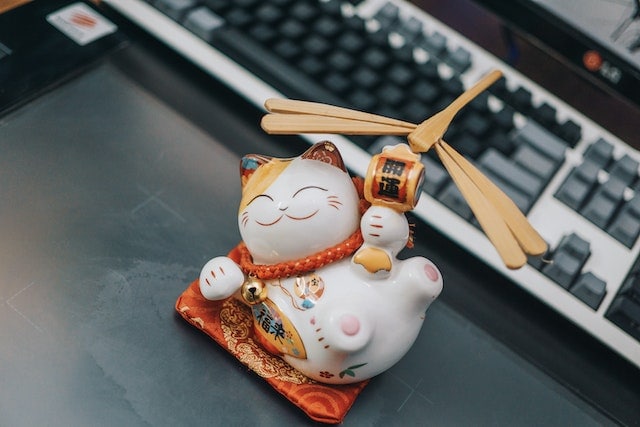
You might already have heard somewhere about the famous Japanese belief of fortune cats. And whenever you visit any Asian markets and restaurants, you will find the lucky cat figurines.
It is popularly known by the name of maneki neko or beckoning cat. It is typically perched in the front of every Japanese-owned establishment, only to bring good fortune to the owners.
Maneki Neko has a raised left paw that attracts customers, while the raised right paw brings fortune. Sometimes, you might even come across a maneki neko who has both paws in the air.
Never Take Pictures of Three People Standing Beside Each Other
Bizarre as it might seem, it is probably the most interesting superstitious belief in Japanese culture. Whenever it comes to any occasion or family gathering, be careful about the positions you stand for taking pictures.
According to this fascinating Japanese superstition, the person standing in the middle will die an early death. So it is always recommended to take careful note of your standing positions when taking pictures.
A Typical Monster Can Make You Lose Yourself at Night
According to Japanese belief, a nurikabe, a wall-shaped Japanese monster, sometimes appears at night and has the power and capability of impeding a traveler’s path. When this happens, the monster can make the traveler get lost for days.
Never Stick Chopsticks Upright in Your Food
Sticking chopsticks upright on your food plate typically symbolizes a ritual of a Japanese funeral. So, it is crucial to practice proper etiquette while having your meals. That means you need to place your chopsticks appropriately on the chopstick rest. You can also consider laying them across your bowl while they are not in use.
You’ll Die Early by Putting Your Pillow in the North
Japanese people believe that placing your pillow towards the north reduces your lifespan. It is because the rule of placing pillows towards the north is followed during funerals, which is why it is considered bad luck for all living people.
So, according to this Japanese superstition, you should always be careful about the directions you’re placing your pillows.
A Cat’s Face Washing Activity Can Fetch Rain the Following Day
Cats are considered to be immensely sacred in Japanese culture and it’s believed that if a cat washes its face, it will rain the next day.
This superstition may have stemmed from the fact that cats have the capability of smelling the moisture in the air. Or it is basically because cats absolutely dislike having wet whiskers. And that is probably why they take care of their face when there’s a lot of humidity present in the air. And humidity often means impending rain.
Even though it has not been scientifically proven yet, this superstition is quite common amongst Japanese people.
Your Body Gains Flexibility After Drinking Vinegar

People of Japan consider vinegar to be extremely healthy. This is because it cleanses your body from within. Even if there is no proven scientific reason behind this superstition, people mostly consider it to be the truth. And surprisingly, many people adhere to the same and practice consuming vinegar to cleanse their bodies.
Cleaning House on New Year’s Day is Prohibited
As per the traditions of Shinto, Japanese people consider New Year’s Day to be the most sacred of all. This day is believed and meant to gracefully welcome all the gods and goddesses into a new year.
So, if you consider cleaning your house on that day, you deliberately push away the gods for the entire year. Even if it is just mere superstition, would you ever take a chance to risk your luck? No, right? So, you should at least not clean your house on New Year’s day.
No Whistling at Night
There are many reasons why whistling at night is considered a bad omen. In feudal Japan, bandits and cutthroats would communicate at night using whistles and tunes. Combined with the belief that whistling at night can attract spirits and actual snakes, the Japanese believe that you should never whistle while traveling alone at night or while getting ready for bed.
Hide your Thumbs When you See a Hearse
It’s a common belief in Japanese culture that the spirits of the dead can enter through the narrow gaps between your fingernails.
Why they won’t enter through a more obvious opening – we don’t really know.
So, when a Hearse or funeral car is passing by, or you’re driving through a graveyard, it’s highly recommended that you hide your thumb inside your palms. Doing so will help prevent the spirits — inhabiting the hearse or the graveyard — from possessing you.
Also, since the Japanese translation for thumb means “Parent Finger”, this implies that your parents might also face an untimely demise if you fail to hide your thumbs.
Don’t Hang Laundry at Night
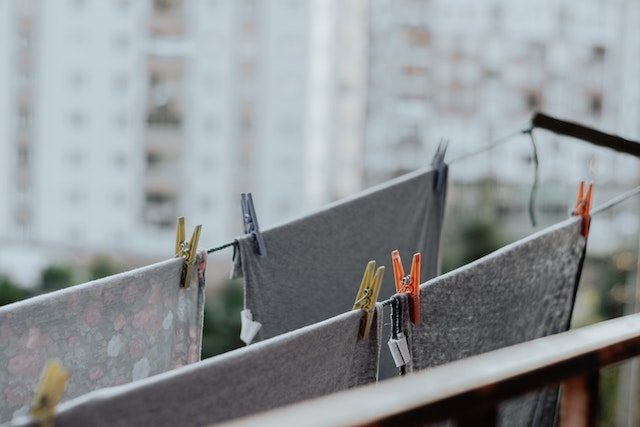
Kimonos were expensive, and instead of buying new ones, most Japanese folk would use the old clothes of their parents or grandparents. But the belief was that the spirits of their ancestors could linger nearby and possess the clothing when they put them out to dry overnight. This superstition is tied to the notion that the spirits of our ancestors like to roam around at night and cling desperately to their old possessions.
Cover your Belly Button During a Thunderstorm
In Japanese mythology, the God of thunder and lightning Raijin, was said to be a very eccentric character who often had a hunger for children’s belly buttons.
So, to avoid Raijin from striking down young children, elders would encourage the kids to cover their torso’s.
Although a belly button doesn’t attract lightning per se, it was a clever tale to encourage children to stay indoors and not catch a cold.
Don’t Lie Down After a Meal
Another cunning tale devised by Japanese parents to keep their children from being lazy, was to warn them that whoever takes a nap or lounges around after a meal would turn into a cow.
Although a post-lunch dip or food coma can be compared to the lethargic and sluggish behavior of a cow, it’s not realistically attainable.
Don’t Climb Persimmon Trees
The Persimmon tree has fragile branches, and it’s highly symbolic of life and death in Japanese culture.
Considering death, Persimmon trees were used to mark gravestones, and their wood was also used as fuel for cremations.
On the flip side, people would string together dried persimmons and hang them on the doorways of their homes during New Year’s Eve for good luck and prosperity.
Whatever the case, climbing persimmon trees is frowned upon since it’s dangerous for little children, and it’s believed that someone who falls from the tree will die within three years.
Never Write a Person’s Name in Red Ink

Speaking of gravestones, it’s very common in Japan, Korea, and China to mark the gravestones of the dead in red ink. As such, if you write a person’s name in red ink, it’s considered a bad omen as it signifies death.
Kill Spiders at Night
Finding spiders inside your house or on your travels in the morning and daytime is considered a sign of good luck. In Japanese culture, the spider is revered as an honorable guest while the sun is out.
However, at night, spiders tend to have the opposite effect, resembling a thief. So, if you meet one at night, it’s tradition to chase it away or kill it, lest it bring bad luck.
Watch out for the Crow’s Cry
Similar to the canary in the coal mine, Crows are also said to be able to predict subtle changes in the environment. In Japan, crows are said to predict earthquakes, so it’s crucial that you “heed their caws” as it can imply imminent earthquakes, which Japan is all too familiar with.
Also, in Japanese mythology, there’s a divine messenger called Yatagarasu, who takes on the form of a crow and heralds the Gods, especially when they’re trying to meddle in human affairs.
So, in the spiritual context, the caws can signify that someone will die immediately due to an illness or an accident.
Be Careful While Living Through a Certain Age
It is also common knowledge that the ages of 25, 42, and 61 are particularly unlucky for men, whereas 19, 33, and 37 are ill-fated for women.
Also, the years before and after this particularly luckless year are said to be cursed, so it’s customary for Japanese adults to be purified at a temple or shrine when they reach these ages.
Don’t Disturb a Pile of Salt

Japanese consider salt to have cleansing properties, implying that it can fully clean a person of spirits and maladies, ward off evil, and attract good luck and fortune.
Because of this, you might often find salt piles scattered on the entrances of homes whenever there’s a funeral nearby. Also, salt piles are constructed during weddings and sumo matches.
Don’t Swim During Obon Season
The Japanese version of Halloween is the Obon season which is observed for an entire week in mid-August. This season is dedicated to the dead so they can revisit their relatives.
Spiritually, the Japanese believe that the dead travel to the realm of the living through the rivers, similar to the River Styx but in the opposite direction.
Locals believe anybody caught swimming will be swept away by the tide and carried off into the underworld. Surprisingly, this superstition holds some weight as the currents can be strong in the summer season.
Wrapping Up
Because of Japan’s rich, long history, it’s no surprise that there are so many superstitions that have emerged from this culture. These superstitions may appear strange to someone not used to them, but to many Japanese people, it’s a part of their culture.




